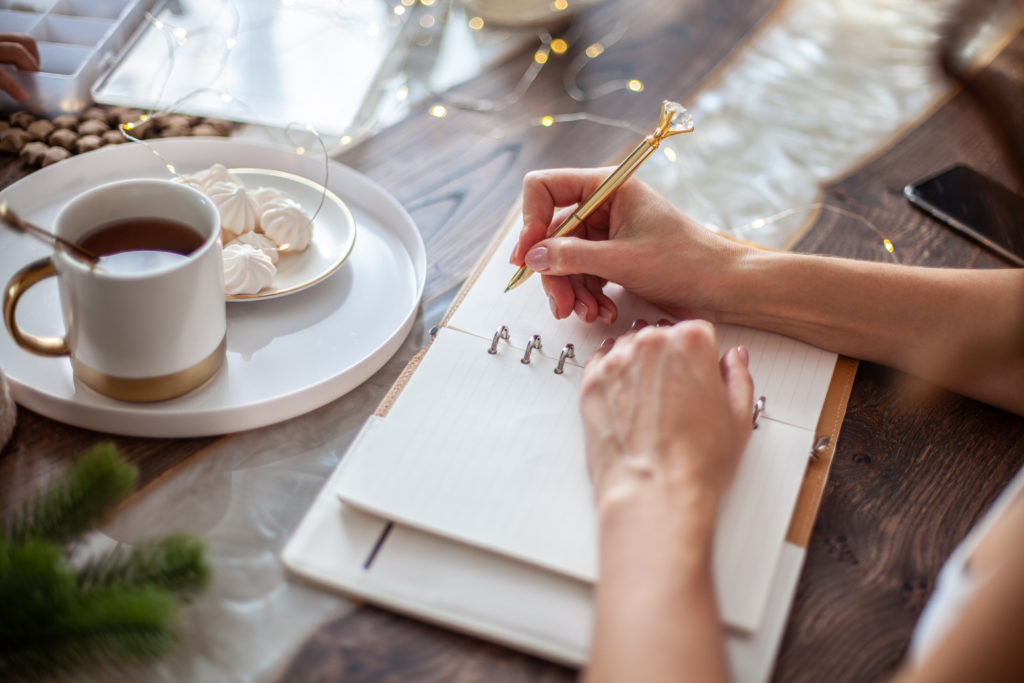
A little bit of stress and some feelings of anxiety during the holidays are completely normal. Winter holidays are one of the busiest seasons (arguably, the busiest season) of the year, and one that, unfortunately, doesn’t always feel so merry and bright.
For individuals or families of individuals who are struggling with mental health issues, this November–January period can pose a series of challenges, ranging from depression and loneliness to mania and panic.
For those who already suffer from chronic anxiety, added stress during the holidays can lead to exacerbated symptoms, such as heightened or severe anxiety and stress.
Today we’re going to take a closer look at how stress during the holidays can affect someone already struggling with anxiety, as well as provide some of the best ways to alleviate it.
What are the causes of anxiety around the holidays?
Each of us has our own limits and triggers; so many of the causes of our anxiety and stress are going to be rooted in personal factors such as the extent of any pre-existing mental health issues, our lifestyle, home/work environment and past memories.
On top of those personal components are the standard holiday stressors, such as:
- Less time on your personal schedule
- Financial pressures
- Social expectations
- The risk of increased illness
- Family dynamics
- Travel complications
Many people are so accustomed to feeling this level of intense stress during the holidays that they’ve forgotten (or never experienced) what it’s like to celebrate the holiday season in a state of peace and relaxation.
Fortunately, there are proven steps you can take to help alleviate the symptoms of holiday anxiety and stress so you can better enjoy this season and time with your loved ones.
How to manage holiday anxiety
Handling anxiety during the holidays can sometimes feel overwhelming, but the good news is you have the ability to help yourself more than you realize.
The top four ways you can take care of your mental health and ease anxiety and stress during the holidays are to set healthy boundaries, practice self-care, exercise daily and embrace professional help.
1. Set healthy boundaries
One of the best things you can do for yourself during the holidays is to set and enforce healthy boundaries for yourself and your loved ones. Family dynamics can be complex, and many can escalate due to a lack of healthy relationship elements (like boundaries).
You cannot control what others do, but you are always in charge of your own actions and what you allow into your life. Many complicated family relationships have connections to a lack of boundaries, respect and privacy; the implementation of boundaries solves many issues. In situations where people do not respect your boundaries, consider limiting time around them.
2. Practice self-care
The anxiety and stress that comes with the holidays often cause us to de-prioritize practices like self-care in the hustle and bustle of everything else, but it is during these times when self-care becomes even more essential.
It’s important to give yourself breaks from social gatherings and other activities that are tiring for you on a foundational level. Practice techniques such as meditation, deep breathing and prayer to help recenter you and bring you peace when you start to get overwhelmed or stressed.
If you know there are certain practices you tend to neglect or forget, you can write them on sticky notes in advance and place them up where you’ll be reminded to engage. For instance, if you tend to put off eating when dealing with holiday anxiety, put a few loving sticky notes around the house to help remind you to grab a snack or give up 15 minutes to prep yourself some lunch.
3. Exercise daily
To remain consistent with exercise, you need to have a healthy mindset towards working out, as well as prioritize working out in a way you genuinely enjoy.
Rather than exercising because you don’t like your body and want a different one, shift your mindset to be that you care about your body and want it to be as healthy and strong as possible. Both mindsets have the same result (losing weight, building muscle, physical “sculpting”), but while the former does so in a self-bullying way, the other encourages you to be better.
If you prefer long walks over treadmill sprints, focus on taking a walk every day, even if just for 10 or 15 minutes. If you prefer working out at home over working out at the gym, get a few basic forms of workout equipment (yoga mat, a set of dumbbells, exercise bands) to have on hand.
4. Embrace professional support
Oftentimes, the best way you can help yourself is to simply ask for help.
As much as we might wish our loved ones could read our minds or just “sense” what we need when we need it, they aren’t mind readers. Even if they were, many of them wouldn’t know what to do, as they likely don’t have the professional qualifications required to help someone struggling with a mental health condition.
For this reason, mental health counselors are available to help you learn the ins and outs of navigating high amounts of stress, challenging emotions and overwhelming situations you might encounter during the holidays.
Seek the help of a mental health counselor
If you’re looking for someone to offer healthy coping mechanisms and support during this time, reach out to High Focus Centers. Call our offices anytime at 800-877-3628 or contact us online to learn more.
Recent Posts
- Do You Have Hidden Trauma? Here’s How to Recognize It & Heal
- The Connection Between Mental Health and Exercise: How Movement Supports Recovery
- What to Expect in Your First Year of Recovery
- Preparing for Your First Outpatient Behavioral Health Appointment: Guidance for Teens and Adults
- Embrace the Season of Change: Why January Is the Best Time to Prioritize Mental Health and Recovery




